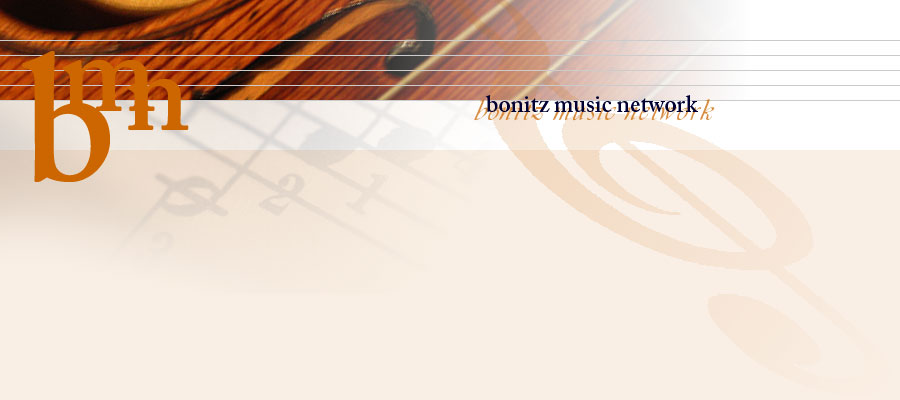
 |
 |
||
|
"See as you hear, hear as you see" | bmn20165 Szymanowski Quartet & Claudia Jahn | bmn20164 Franziska Hirzel & Tobias Schabenberger | bmn20162 • Borromeo String Quartet | bmn20161 • BeethovenQuartett | bmn20158 • Zemlinsky Quartet | bmn20156 • Couchane Siranossian, Thomas Demenga & Jan Schultsz | bmn20155 • BeethovenQuartett & Franzsika Hirzel | bmn20154 • Krishnasol Jiménez Moreno | bmn20153 • Basler Streichquartett & Jan Schultsz | bmn141 • Grimms Märchen Vol. I | bmn20143 • Thomas Demenga & Jan Schultsz | bmn20142 • Arditti Quartet & Franziska Hirzel, soprano | bmn20137 • Thomas E. Bauer & Jos van Immerseel | bmn20136 • Daimones Piano Trio | bmn20135 • Szymanowski Quartet | bmn20134 • Franziska Hirzel & Jan Schultsz | bmn20133 • Valentin Valentiyev | bmn20132 • Hansheinz Schneeberger & Bettina Boller | |
Baroque Portrait | First Recording
The present recording brings together two pioneers of the cello literature: Johann Sebastian Bach and Jean-Baptiste Barrière. They were even contemporaries through Barrières short lifetime. Both belonged to the esteemed composers of their country. Life and work could not be more different: On the one hand, the organist successful in numerous genera, court conductor and “Thomas Kantor” Bach, on the contrary, the cello virtuoso Barrière, who was early accepted at the Académie Royal de Musique in Paris, and of whom we do not knowmuch due to his short life. It is not known how the Cobblers son, Jean-Baptiste Barriére,
born 1707 in Bordeaux, found music. Only his inclusion in the prestigious Royal Academy at the age of only 23, and an early support by King Louis XV., who gave him the privilege to print his works for the first time in 1733 are historically documented. This right was renewed in 1739 for another twelve years. However, Barrière could not more fully exploit it. We also know that the cello virtuoso celebrated successes and even went to Rome from 1736 to 1739 to perfect his play with the leading Italian master Francesco Alborea. At the time, Italy was considered a model and vanguard in the development of solo instrumental music, especiallythe violin and other string instruments. |
|
|
|
||